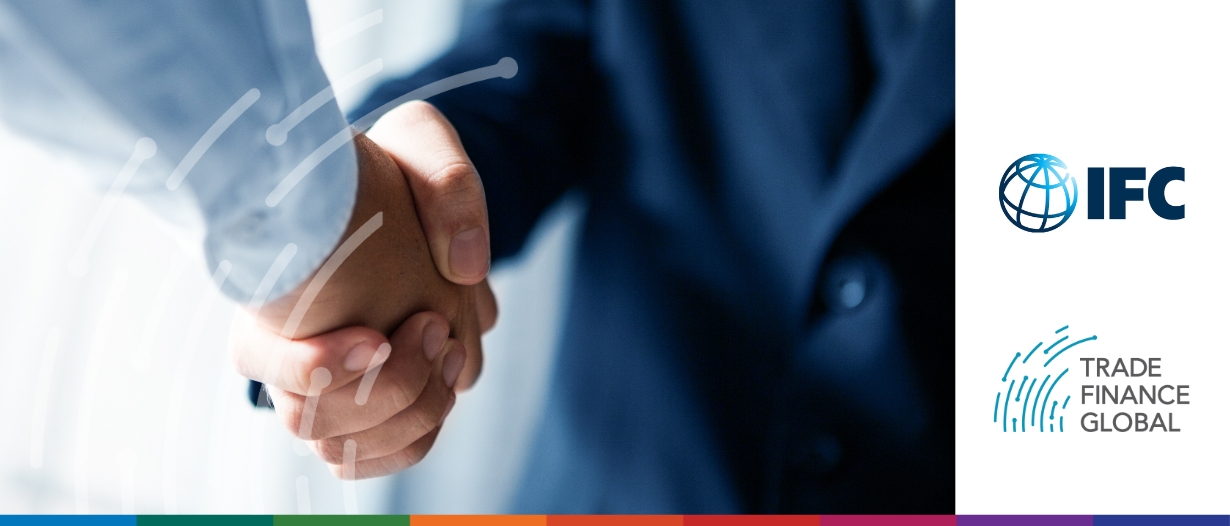For over two decades, the International Finance Corporation (IFC), the World Trade Organization (WTO), and multilateral development banks (MDBs) have been partners in enhancing global trade finance.
This collaboration shows how coordinated multilateral efforts can bolster trade, particularly in times of crisis.
By leveraging their collective strengths and resources, these institutions have addressed immediate financial challenges and laid the groundwork for long-term trade development.
To discuss the collaboration at the IFC Global Trade Partners Meeting in Barcelona, Makiko Toyoda, Global Head of the Global Trade Finance and Global Supply Chain Finance Program at IFC, spoke with Dr. Marc Auboin, counsellor at the WTO.
The partnership between IFC, MDBs, and WTO in trade finance
The partnership was born out of necessity during the financial crises of the late 1990s and early 2000s and has continued adapting to new economic challenges.
Toyoda said, “We have been working together for the past 20 years and it has been going really well.”
Initially, the focus was on improving the availability of trade finance during periods of crisis, like the 2007-2008 financial crash, when the G20 mandated international organisations to devise a support plan for trade finance.
The collective effort of these organisations provided a lifeline to the trade finance community, ensuring liquidity and support for traders, particularly small and medium-sized enterprises (SMEs).
Auboin said, “There were several stages of this work when different institutions – particularly the WTO, IFC and other MDBs operating trade finance programmes – have shown togetherness and ramped up their programs to support trade and traders at a critical time.”
The partnership is not merely about crisis response, but also about long-term development. By working together, the IFC, WTO, and other MDBs have enhanced many countries’ capacity to support their trade by improving diagnostics to identify gaps in trade finance and directing resources more effectively.
Auboin said, “The cornerstone is our Enhanced Cooperation Agreement of 2021, where our leaders have worked together to recognise that trade finance is largely a development issue centred on increasing the countries’ ability to support their own trade.”
Such efforts are crucial in building resilient and self-sustaining trade finance ecosystems in developing economies.
The role of MDB working groups and supply chain finance initiatives
These partnerships, along with the working groups and task forces that exist through them, strive to address the broader market needs by identifying and bridging gaps in supply chain finance.
Toyoda said, “We appreciate the MDB working groups where we have created many different task forces. The IFC also enjoys working on the supply chain finance working group task force.”
This work includes creating an enabling legal environment and other necessary infrastructure for market development. Focusing on these areas ensures that banking and non-banking solutions are available to support all businesses, including SMEs, that are integral to global trade networks.
These institutions are making significant strides in reducing global trade finance gaps by pooling resources, sharing knowledge, and working towards common goals. Their efforts are critical in ensuring that trade finance remains accessible and efficient, fostering inclusive economic growth and development.
The partnership between IFC, MDBs, and WTO, supported by the strategic initiatives of the working groups, plays a crucial role in the global trade finance ecosystem.
These collaborations ensure that trade finance is available, efficient, and supportive of SMEs worldwide, equipping the trade finance community to handle future challenges and support sustainable economic growth.
Toyoda said, “We are very happy to do the work we are consistently doing over time so that we can all together reduce the global trade finance gaps.”

































